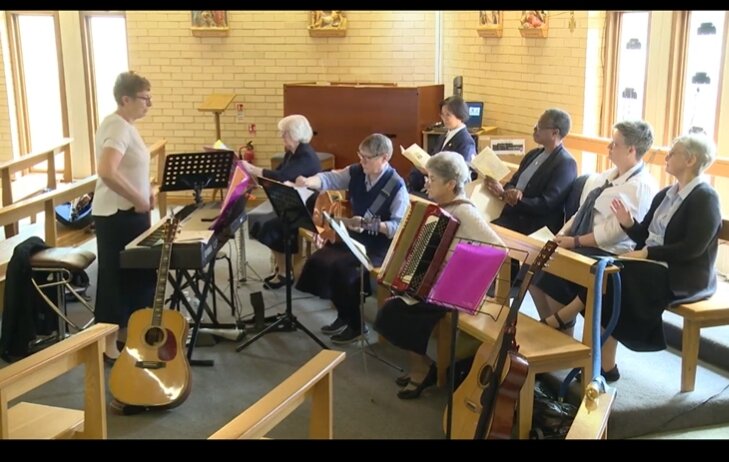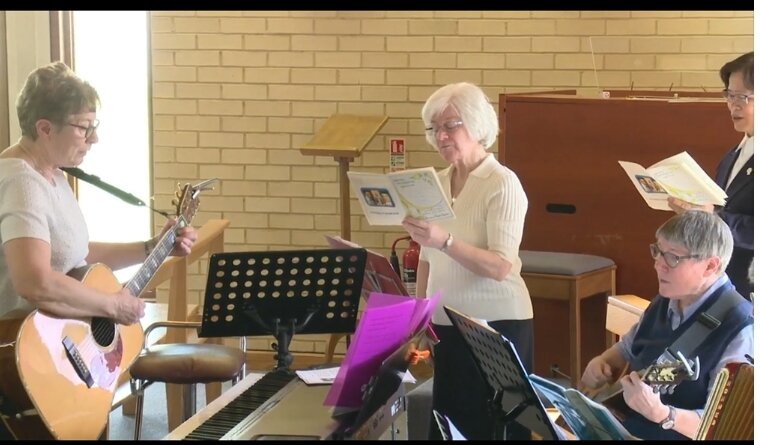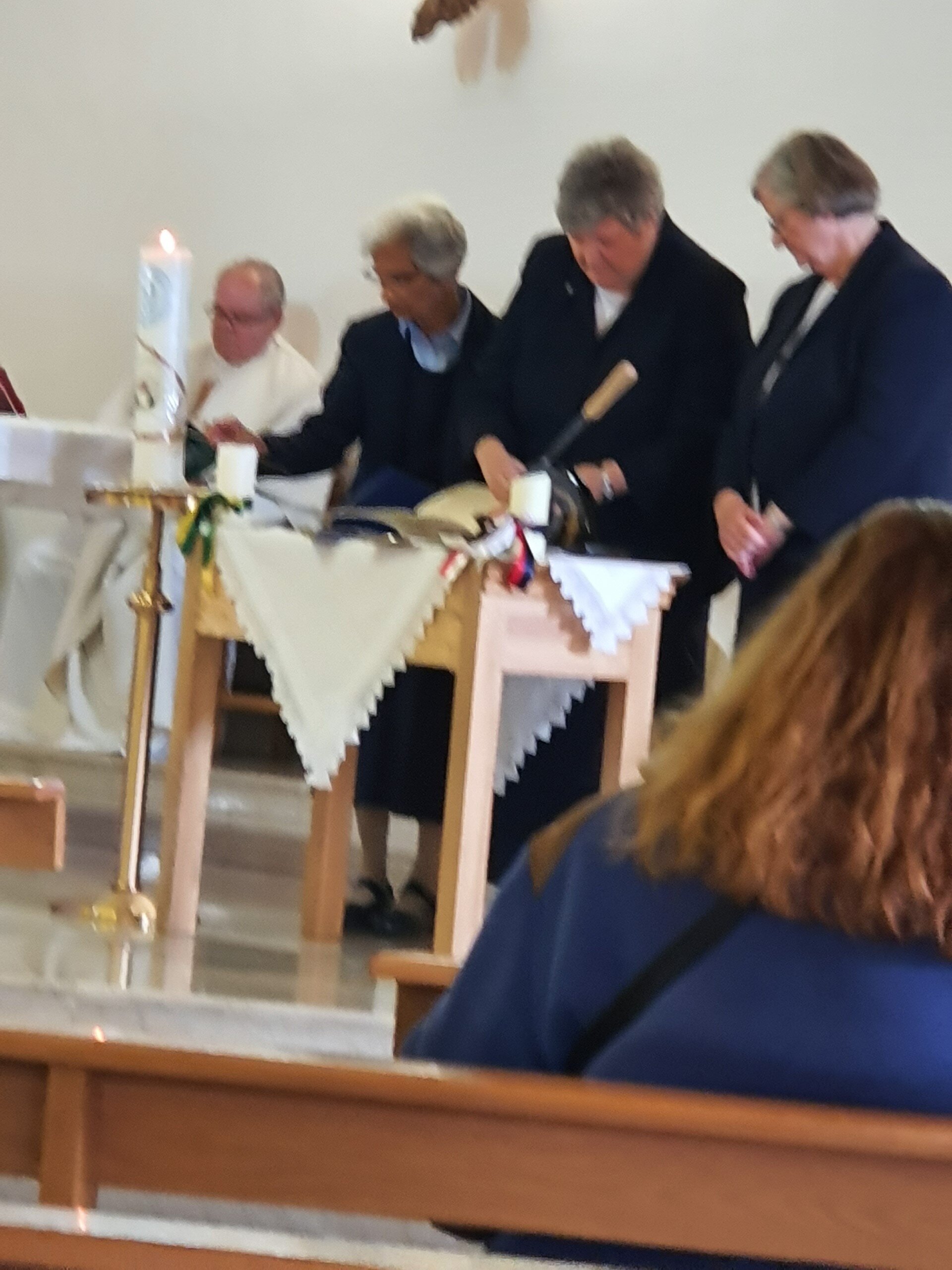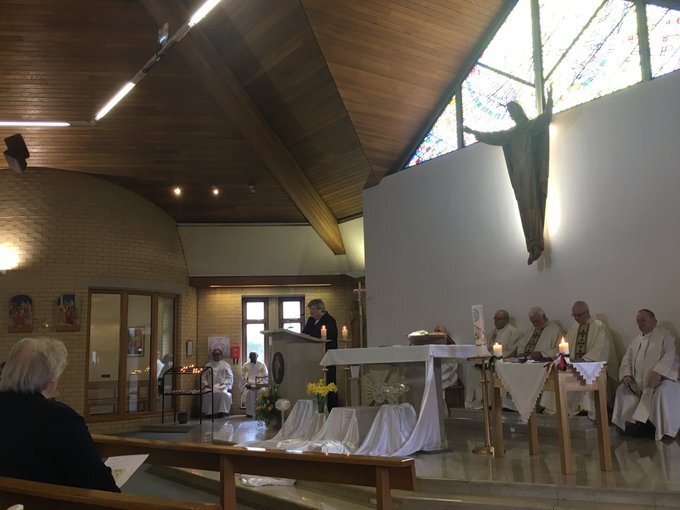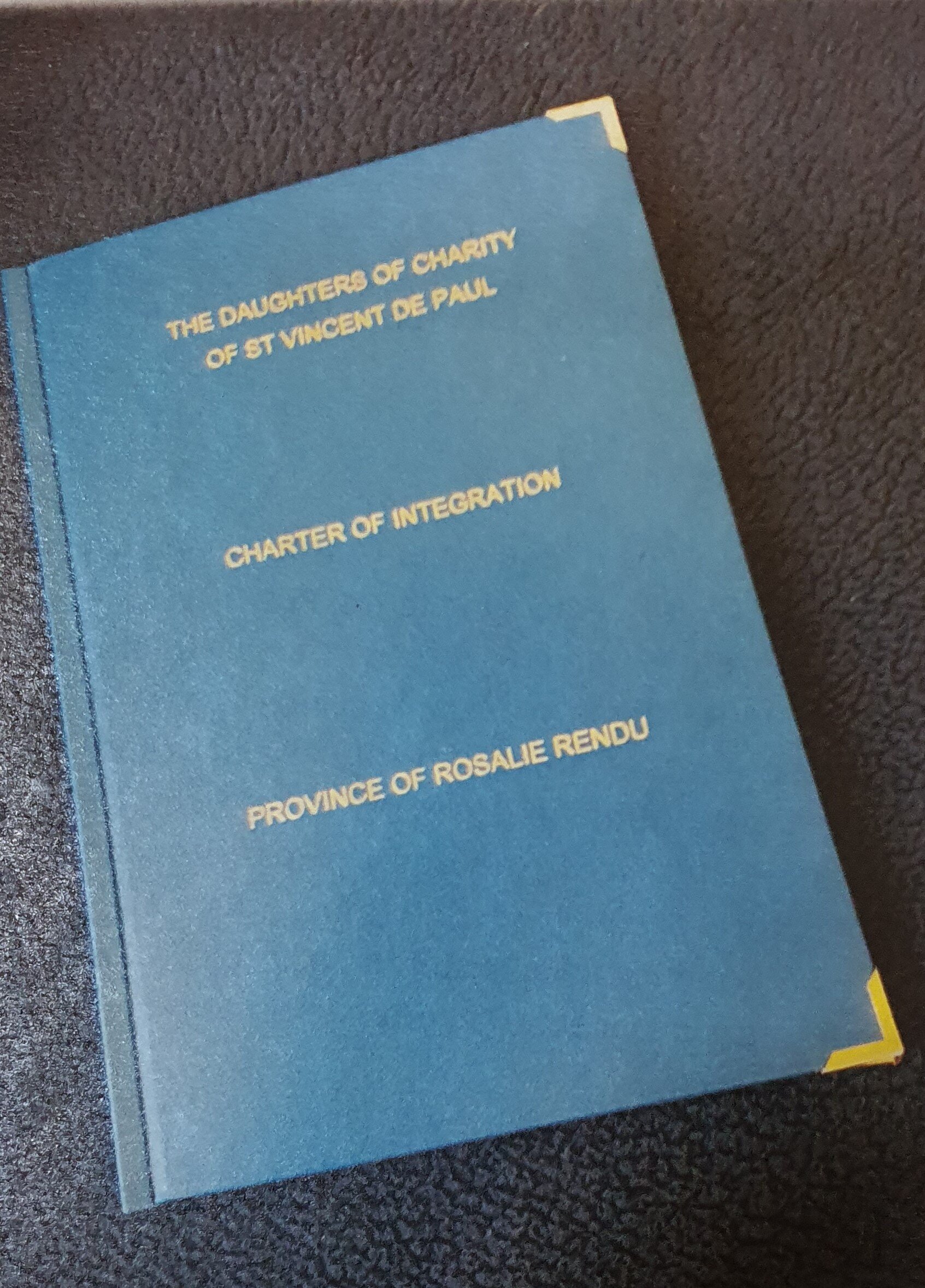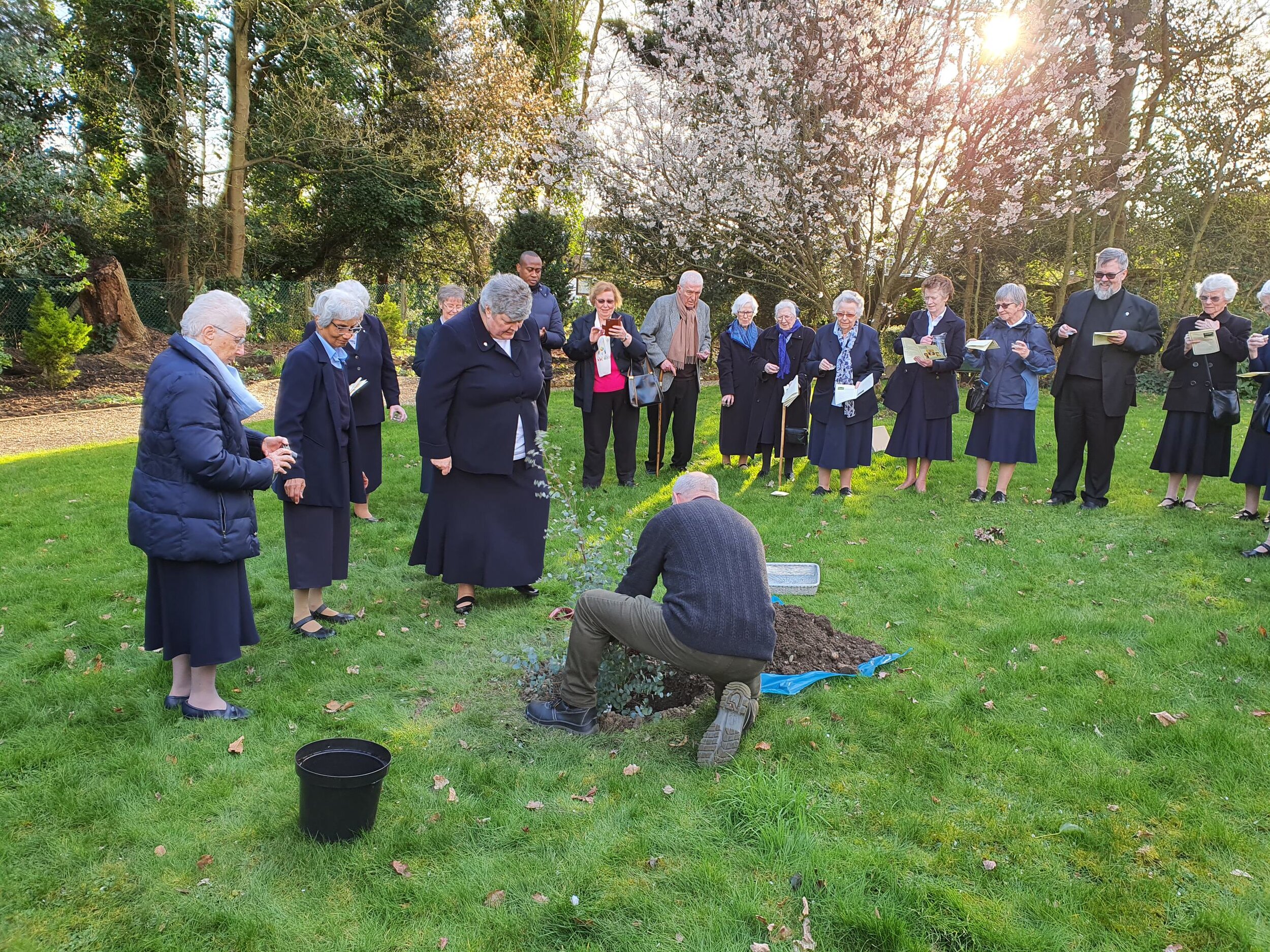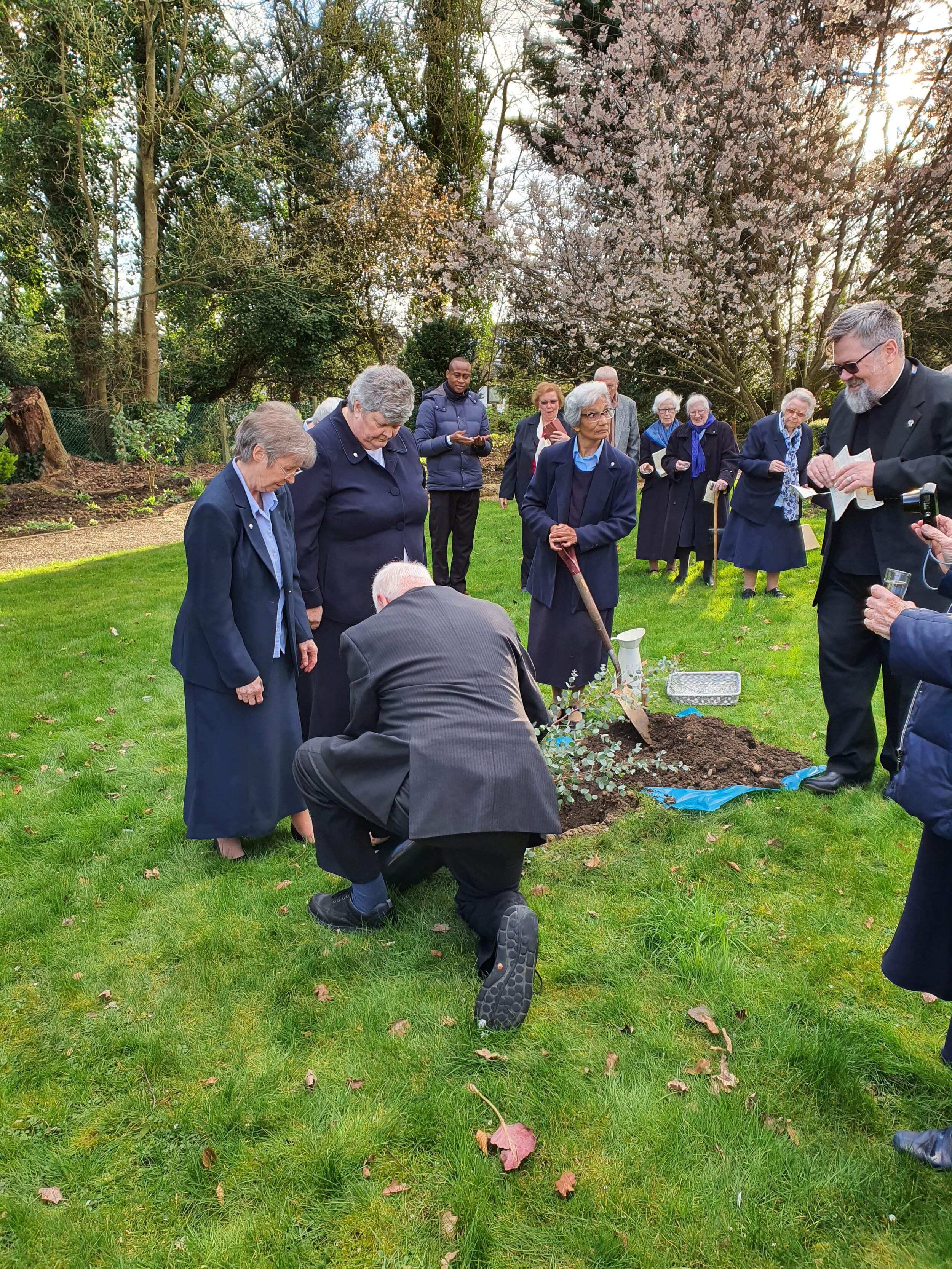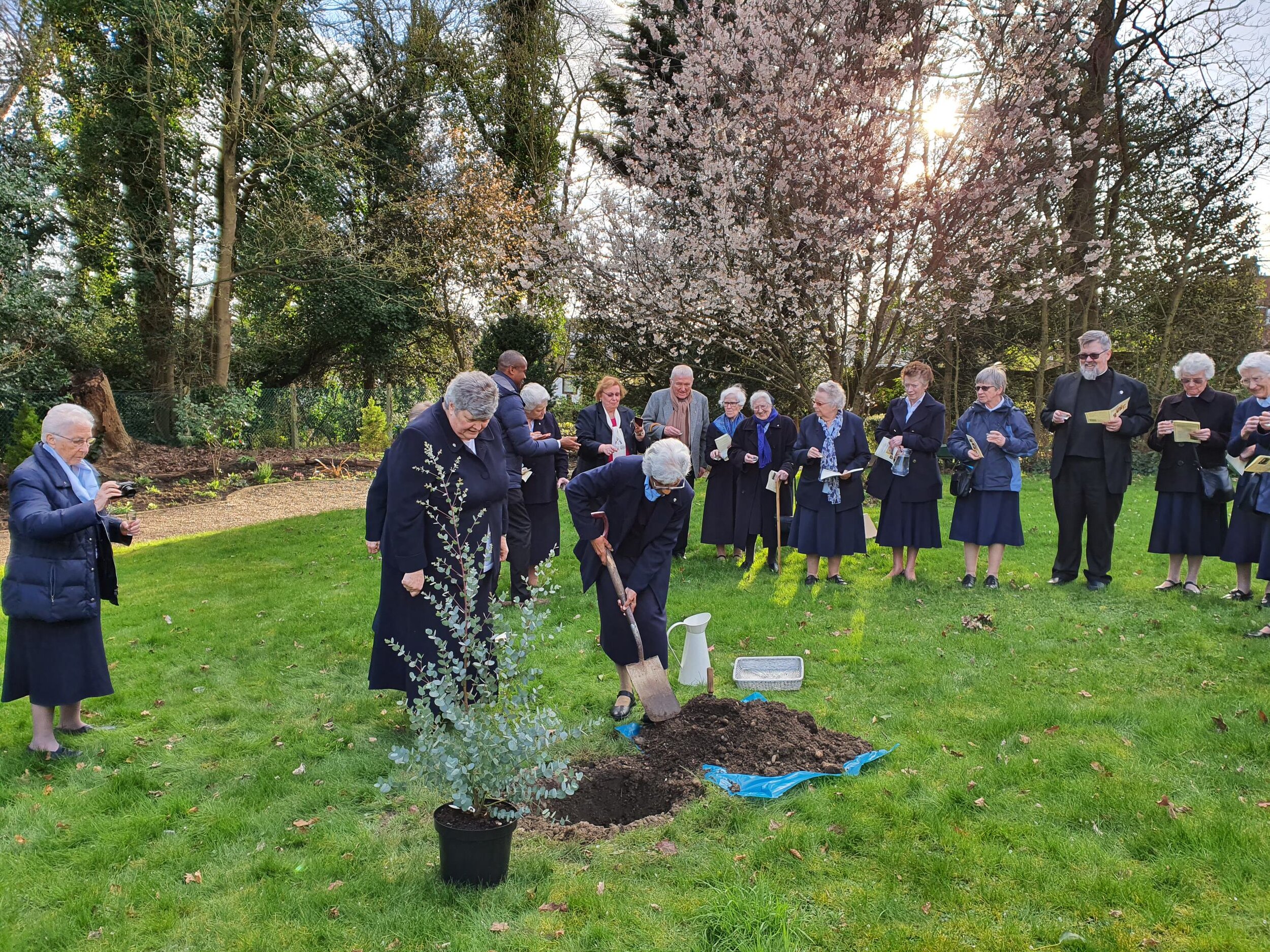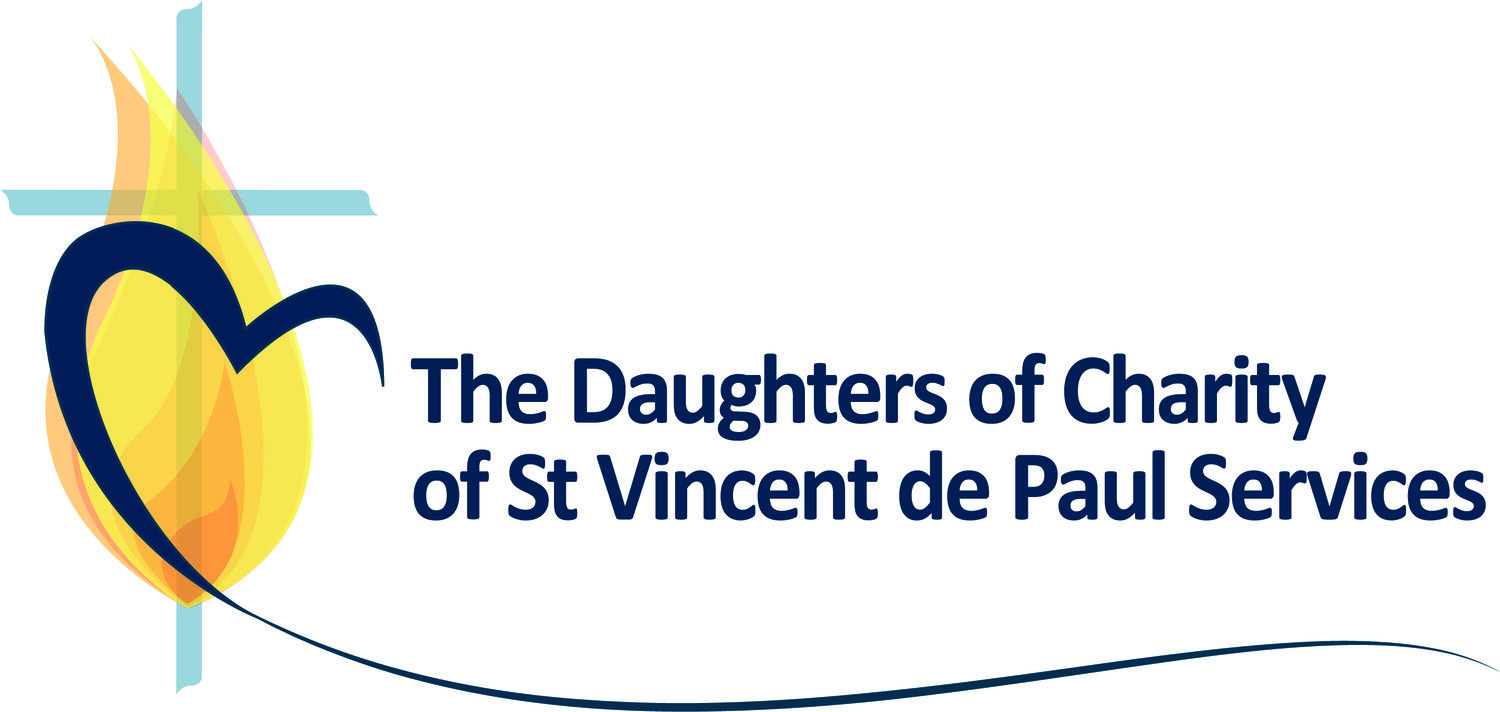The Birth of the Province of Rosalie Rendu
The 11th March now marks a historic date in the Vincentian family calendar - a commemoration of the day the British and Australian Provinces of the Daughters of Charity of St Vincent de Paul became one.
The integration of the two Provinces, now entitled the Province of Rosalie Rendu, was formalised with a “beautiful and emotional” Dedication of Seal ceremony, which took place at the Sacred Heart Church in Mill Hill on the morning of March 11, 2020.
Over 80 members of the Vincentian family assembled at the Mass to celebrate the significant occasion, including more than 10 Vincentian priests who concelebrated the liturgy. The congregation witnessed the signing of the Charter, carried out by the Australian and British Provincials - Sister Celine Quadros and Sister Ellen Flynn. A great wax seal was then affixed to the Charter, and the two Provincials lit a large candle from two smaller flames to symbolise the two Provinces becoming one.
The celebration closed with the planting of a eucalyptus tree in the grounds of the British Provincial House in Mill Hill, to signify the birth of the new Province. It was a replica of a ritual which had been carried out earlier in the month at the Australian Provincial House in Marsfield, Sydney.
The Province of Rosalie Rendu was the result of a long discernment on the part of the two Provinces, which resulted in the Australian Province coming back to its roots. The Province was established in 1926 when four members of the Province of Britain and Ireland arrived in western New South Wales, Australia, for the very first time.
Despite the two (once-independent) Provinces continuing to service those experiencing poverty in separate areas of the world, the formation of the Province of Rosalie Rendu will see the Sisters working as one in their desire to reach even more people in need.
The new Province’s name reflects the legendary Daughter of Charity Sister Rosalie Rendu, who in the 19th-century dedicated her life to serving the poor. Rosalie showed great courage, leadership and honour to those experiencing poverty in her time and became known as the “good mother of all”.
